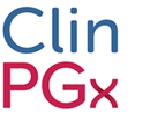Pharmacogenomics: Information sources
Some Summaries of Product Characteristics may contain helpful information about prescribing medicines according to a patient’s genomic profile (e.g. allopurinol, clopidogrel, citalopram, simvastatin). These may be accessed via the emc or MHRA websites.
The MHRA have published multiple alerts relating to pharmacogenomics and drug safety. These include:
Carbamazepine, oxcarbazepine and eslicarbazepine: potential risk of serious skin reactions [2012]
Tamoxifen for breast cancer [2010]
Tamoxifen for breast cancer [2010]
Statins: benefits and risks [2014]
Codeine: restricted use as analgesic in children and adolescents after European safety review [2013]
The National Genomics Education Programme’s GeNotes site has an A-Z Knowledge Hub which you can use to refresh your memory or learn about different genomic concepts. The site also has a series of clinical scenarios including some on pharmacogenomics.
ClinPGx replaces what was previously called PharmGKB. It is a North American specialist pharmacogenomic resource for healthcare professionals and patients. It includes a drug optimisation tool called PharmDOG and a function that enables users to compare pharmacogenomic guidance from different information sources. There is also an option to filter for evidence that specifically relates to children.
A related site is the Clinical Pharmacogenetics Implementation Consortium. Also funded by the US government, this resource aims to support healthcare professionals make decisions about medicines based upon the results of pharmacogenetic testing. The menu bar signposts you towards guidelines, an alphabetical list of medicines together with genes that may impact upon their efficacy or safety, and lots of other helpful information. Again, you can listen to Dr Mary Relling explain more about the site (17 minutes).
Several of NICE’s Clinical Knowledge Summaries may
also be helpful to pharmacists and pharmacy technicians working with pharmacogenomic
data including that on Familial
hypercholesterolaemia, carbamazepine
for trigeminal neuralgia and allopurinol
for gout.
Genomics England have an independent Participant Panel who have produced a useful guide on language and terminology when communicating with patients and their families. It is intended for Genomics England staff but may be helpful for healthcare professionals conducting consultations.








